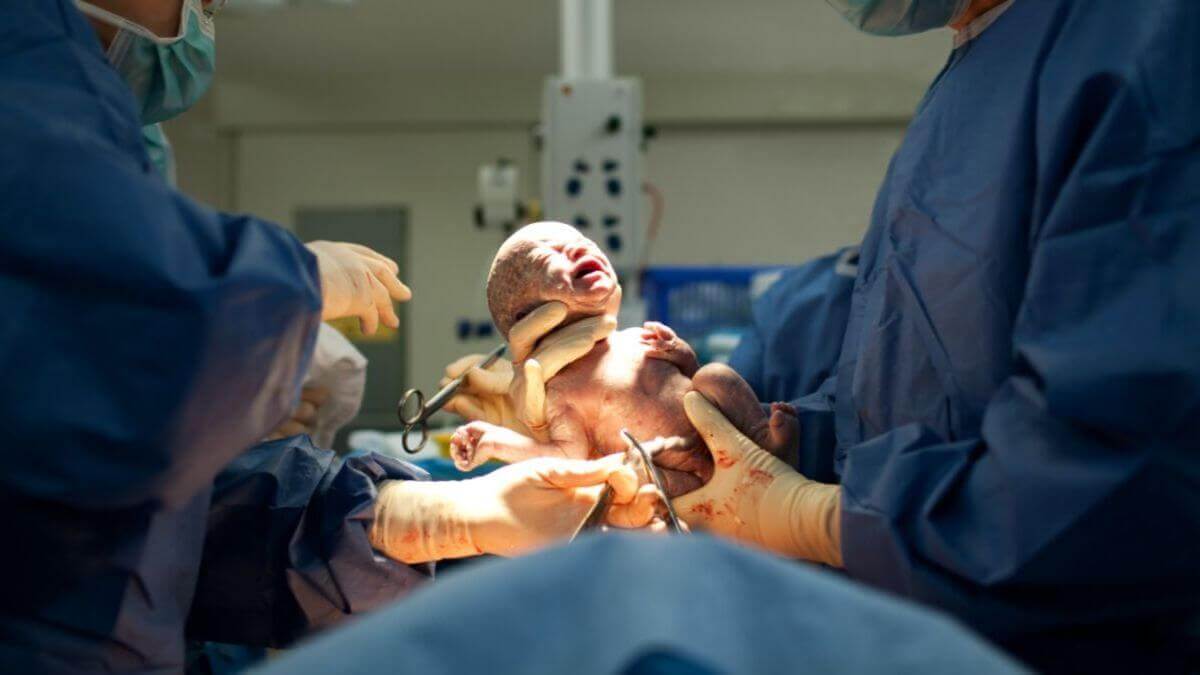For months we have been aware of the discriminatory disparity in patient care: that unborn babies aged 20-24 weeks gestation undergoing spina bifida surgery receive foetal painkillers, but that babies of the same age being aborted are not given painkillers.
MPs have been lobbying the Department of Health and Social Care who have finally raised the issue of the use of foetal painkillers in late term abortions with the Royal College of Obstetricians and Gynaecologists (RCOG).
This would be welcome news because one would assume that the RCOG would recommend that all babies from a gestational age of 20 weeks onwards would receive painkillers prior to any invasive procedure.
However, RCOG’s track record suggests otherwise.
When they were first asked by the Department of Health to investigate foetal pain in 1997, they concluded that consultants should consider the need for the use of painkillers for ‘diagnostic or therapeutic procedures’ on foetuses in utero. Indeed, the Department of Health admitted that foetal painkillers are used in cases of in utero surgery from 20 weeks gestation. But what about in cases of abortion? If an unborn child needs painkillers for ‘diagnostic or therapeutic procedures’, surely they need them all the more in an abortion? Perhaps unsurprisingly, the RCOG omitted to raise or answer these awkward questions.
To do so would risk humanising the unborn baby our society has worked so hard to dehumanise, at least when it comes to abortion. This is why we witness this curious doublethink whereby unborn babies in need of ‘diagnostic or therapeutic procedures’ are given painkillers, but babies to be aborted are not. In the former case, the baby is (presumably) wanted, and therefore acknowledged to be a baby capable of feeling pain and entitled to pain relief. In the latter, the unwanted baby, destined to be aborted, amazingly enough, can feel no pain (according to RCOG at least).
How do we know that the baby destined to be aborted can feel no pain? Well, in 2010, the RCOG looked into this question confidently announcing that before a 24 week abortion, “No, the fetus does not experience pain”.
In fact, the RCOG go even further than this. In their 2010 Guidelines on Fetal Awareness they assert that the unborn baby is in an unconscious state and does not reach consciousness until birth. This conclusion is based on, in the words of RCOG 2010 ‘good’, ‘increasing’ evidence, but this evidence was one paper from 1986: an experiment on sheep foetuses exposed to low oxygen levels. As a result, they concluded, and ever since have advised mothers accordingly, that there is no requirement for foetal painkillers prior to an abortion at any gestational age even up to the point of birth.
Again though, this does not square with practice in relation to in utero corrective surgery on unborn babies.
Sadly this is not surprising given the varied lengths RCOG has gone to in dehumanising the unborn baby whose life will come to an end in abortion. For example, specifically using language which ignores the humanity of the child such as ‘products of conception’, a ‘pregnancy’ and, by the president of the RCOG, likened to a bunion.
Moreover, the RCOG, who author all clinical guidelines for the UK abortion industry and have many members who benefit from this, are effectively unaccountable without checks or oversight. The Department of Health does not let the tobacco industry govern itself, but it does allow this freedom to the abortion industry, worth an estimated £118 million annually in 2011. They also use their position of unchecked authority to advise parliament and publish their version of abortion advice to schools.
RCOG clinical guidelines are more untouchable than the law itself. Our law is made by elected representatives in the open to serve the country; their clinical guidelines are made by an unaccountable body behind closed doors to serve themselves.
So, based on their past form and knowing that they can publish unaccountably, what advice will they come up with for these babies being aborted without painkiller? Unless their hand is forced, anything they wish.
Until RCOG say otherwise, around ten mothers a day* continue to proceed with a very late term abortion (post 20 weeks) under the assurance that their baby will feel no pain and so does not need painkiller. Yet in the same hospitals, mothers with babies of the same age are assured that their baby will feel no pain because foetal painkillers will be given.
*In 2018, there were 3,602 abortions after 20 weeks. Therefore, there were approximately 10 late term abortions (post 20 weeks) every day in 2018. (See Abortion statistics 2018: data tables T5)
All opinions expressed here are the author’s own and do not necessarily represent the views of Right To Life UK.

